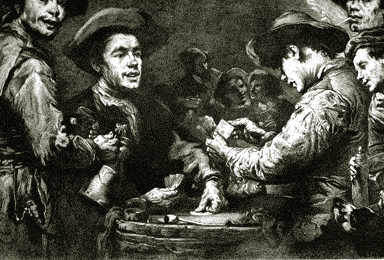Ready to learn amazing facts about Poker and Poker chips? This popular game of cards dates back over 1,000 years, crossing several cultures and continents worldwide. It has been one of the best games for entertainment or professional gambling for decades. The game has survived pandemics, world wars, the Great Depression, and market crashes.
The two most significant events in poker’s progress are the introduction of the draw hand and the invention of the jackpot. These two steps improved the hand and gave cautious players a reason to join the game.
Top 10 Interesting Facts About Poker
- Poker is over 1000 years old.
- The largest prize in a poker tournament, won by Bryn Kenney, is $20 million.
- The World Series of Poker (WSOP) is the largest live poker tournament in the world.
- The Royal Flush is the best hand to win in poker because it has the best odds of winning.
- The earliest form of poker was played with a 20-card pack.
- Guy Laliberte, CEO of Cirque Du Soleil, made the first $ 1 million poker stake in 2012.
- The first ever poker game to be televised was in 1973.
- The longest continuous poker tournament lasted from Dec 13th to Dec 15th (48 hrs and 55 minutes).
- The most extended online poker session ever took place in Spain, lasting 49 hours.
- Poker became a part of the American culture during the Civil War in the 19th century. Soldiers, cowboys and others would play to kill time & release stress.
Origins and evolution of poker
Some historians claim that poker started as a domino game in China during the 10th century. Others swear it began as a Persian card game in the 16th century. However, the closest European predecessor to poker is Poque, which can be traced back to France in the 17th century.
However, Poque and Pochen (German version) can be traced back to the Primero Spanish game, played in the 16th century. It featured three cards dealt to each player and a lot of bluffing.


Poker in America
It needs to be clarified when poker started in America. It is said that Native American tribes were already playing various card games. Furthermore, references to poker can be found in American literature, letters, and art dating back to the 1800s. For instance, Dragoon Campaigns to the Rocky Mountains, published in 1836 by J. Hildreth, and Exposure of the Arts and Miseries of Gambling by Jonathan H. Green in 1843.
While the earliest form of the game was played with a 20-card pack, the 52-card pack started gaining popularity in the 1830s. The number of cards was increased to accommodate more players and turn the game from a mere source of entertainment into a game of skill.
The draw was introduced in 1845 to add an extra thrill to the game since the Flush, being the only way to win, was becoming monotonous. From 1850, poker experienced rapid changes as it became widespread due to the war, trade, and scramble for colonisation.
How did Poker get to Britain?
Many legends and tales explain how poker was introduced to Britain. However, the most verifiable explanation revolves around General Schneck, the American ambassador to Britain and a former Union Army General in the American Civil War. He loved card games and casually taught them to people working for him or his visitors.
Letters have been discovered in which General Schneck wrote to General Young of Cincinnati describing the rules and steps to play poker. Students copied down the letters and printed booklets later distributed in Britain. Although Poque & Pocher had been played in Britain before, this is the first written record of modern-day poker in the United Kingdom.
Fun fact: The introduction of Jack Pots in 1864 was a wild era. Ferocious players would bet on anything, including spouses, land and shooting cowboy duels.

Poker chips
In the early to mid-1900s, players used all sorts of things to play, including gold nuggets, gold dust, and coins to track their stakes. Somewhere along the line, they realised standardisation was required. To solve this problem, casino saloons started creating clay chips.
Throughout the 1900s, the design of chips evolved into ceramics, porcelain, and plastic. New poker variants emerged, including Texas Hold’em and High-Low poker. Finally, in 1970, the World Series of Poker was launched, and since then, millions have been won in the tournament.
Final thoughts
Today, all kinds of poker variants are available at online casinos. What’s better, due to the invention of live casinos, players worldwide can join poker tables and play against live dealers in real-time from their convenient locations!
It is possible for a player whose hand could be better to win the poker pot. Poker is all about the best hand winning the stakes (pot). Sometimes, all players give up and drop out, and the last person to raise wins the pot.





